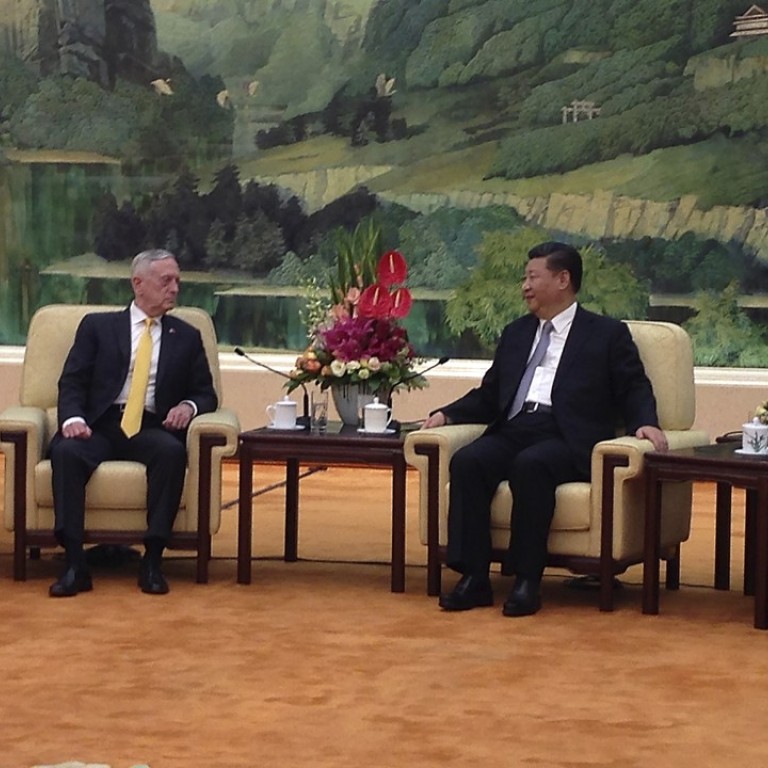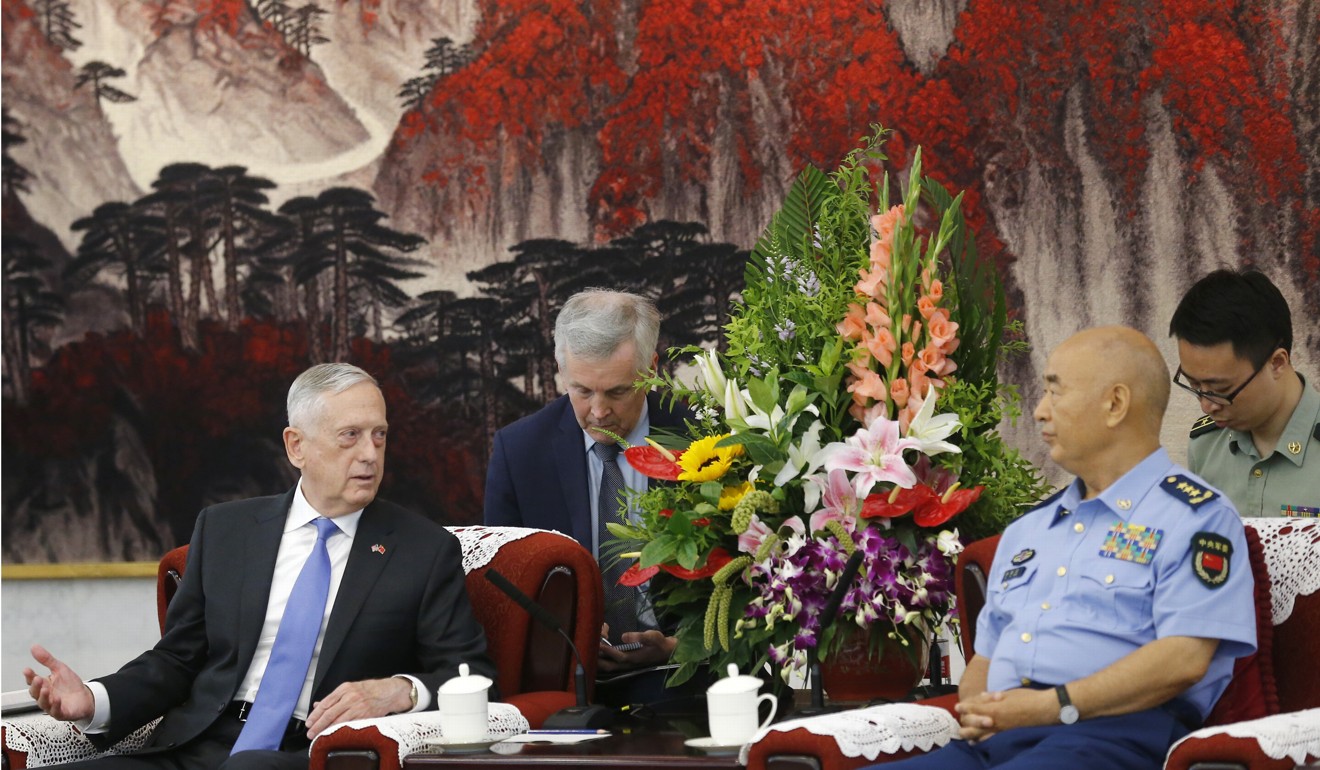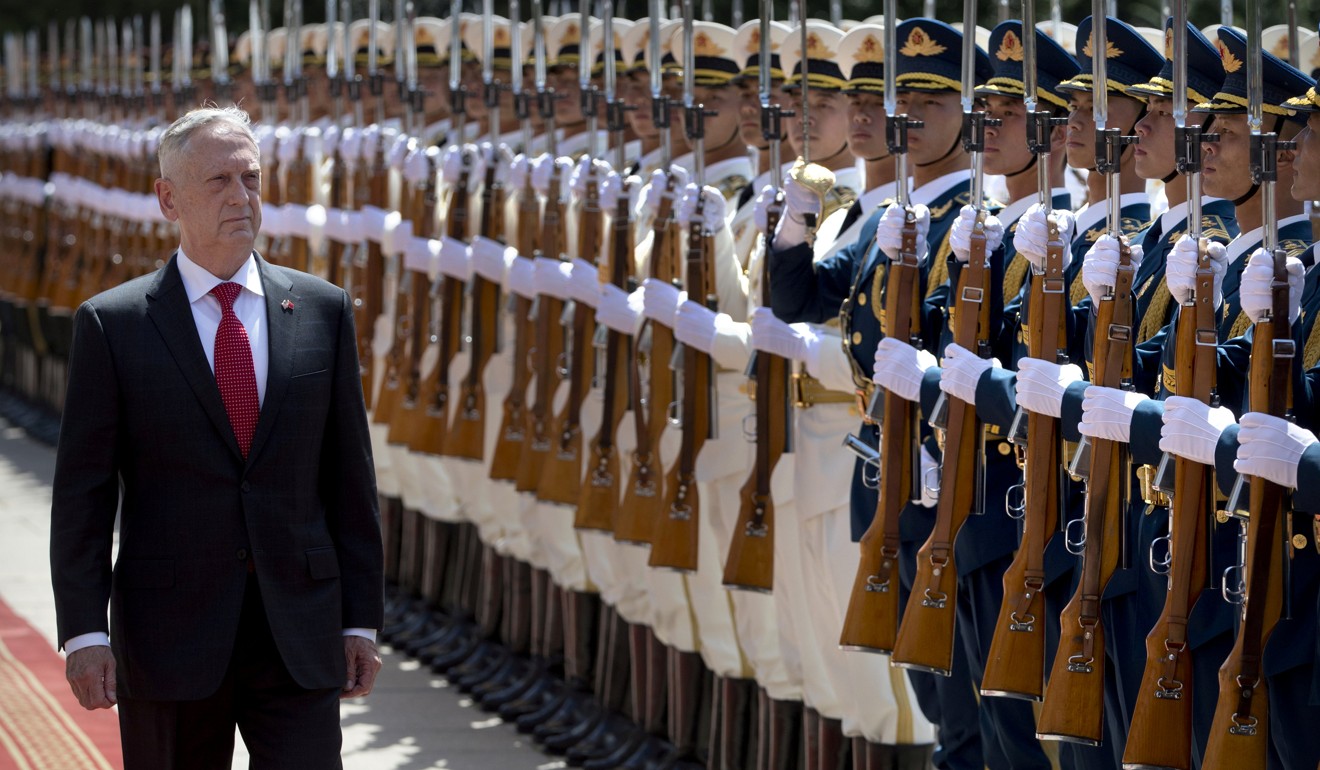
Visit by Mattis opens dialogue that can chip away at the mistrust
While neither China nor the United States would willingly start a war, the rhetoric on both sides is so heated the risk of a mishap that could quickly escalate into conflict is ever-present and growing. A pledge to strengthen communication is a step in the right direction
Any doubts the United States had about China’s intentions in the South China Sea have been vanquished by President Xi Jinping; he told visiting American defence secretary James Mattis that Beijing would never give up a single inch of territory.
There can be no mincing of words with Washington stepping up its military presence in the region and amid heightening tensions over trade and Taiwan.
Jim Mattis visits Beijing at ‘critical time’ for China
Neither side would willingly start a war, but with the rhetoric so heated and increasing numbers of warships plying the waters, the risk of a mishap that could quickly escalate into conflict is ever-present and growing.
The Chinese leader focused discussion on strengthening communication and exchanges between the militaries with the aim of building trust and preventing misunderstandings.
There has been a prompt positive outcome – Defence Minister General Wei Feng accepted Mattis’ invitation to visit the US this year.

But the Chinese position is clear, with Xi saying China had peaceful intentions, although there would be no concessions on what the nation considers to be its territory.
Strengthening “exchanges and mechanisms at all levels” would help to “dissipate misgivings and to prevent misunderstandings, miscalculations and accidents”. The groundwork was laid for better cooperation through agreements on issues including North Korea and Afghanistan.
Mattis, who later flew on to Seoul and Tokyo to reassure about his country’s commitments to its allies, is the first American defence secretary to visit China in four years.
US Defence Secretary Jim Mattis tells China he is ready to listen
That lack of top-level interaction between the rivals has been worrying, particularly given the military manoeuvring that has been taking place.
US President Donald Trump claims to have a personal friendship with Xi, but that has not prevented provocations like the sailing of navy vessels near Chinese man-made islands in disputed waters in the name of “freedom of navigation”.

Beijing has never obstructed commercial traffic passing through the region, so such actions are purely about goading and testing resolve.
Under Trump, the US Navy has significantly stepped up its missions, each time prompting the foreign ministry in Beijing to claim sovereignty has been infringed.
Three American aircraft carriers have visited the Philippines this year, the first such trips since 2014, and a carrier made a historic stop in Vietnam.
Snubbed in world's biggest war game, will Beijing make waves?
Showing how poor relations are, the US disinvited the People’s Liberation Army Navy from participating in its multi-nation Rim of the Pacific exercises.
The meetings with Mattis opened long-needed dialogue that can hopefully start to chip away at the mistrust. There is much work to do but it is a good and necessary start.

